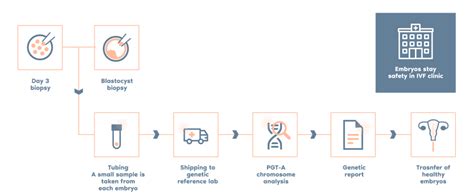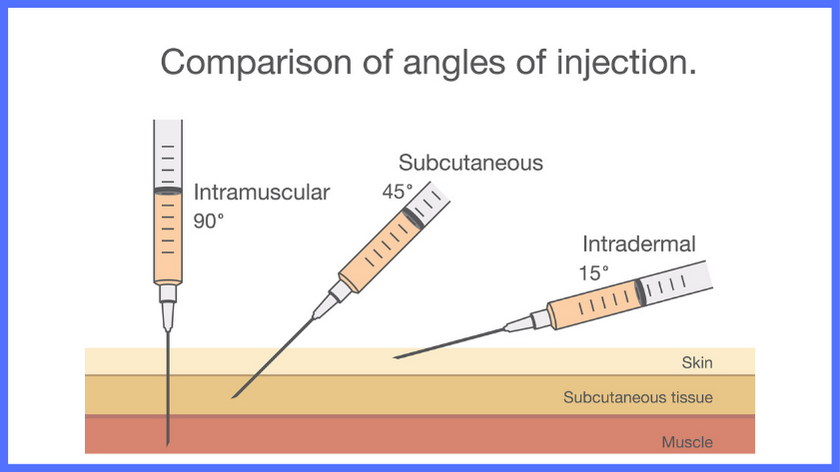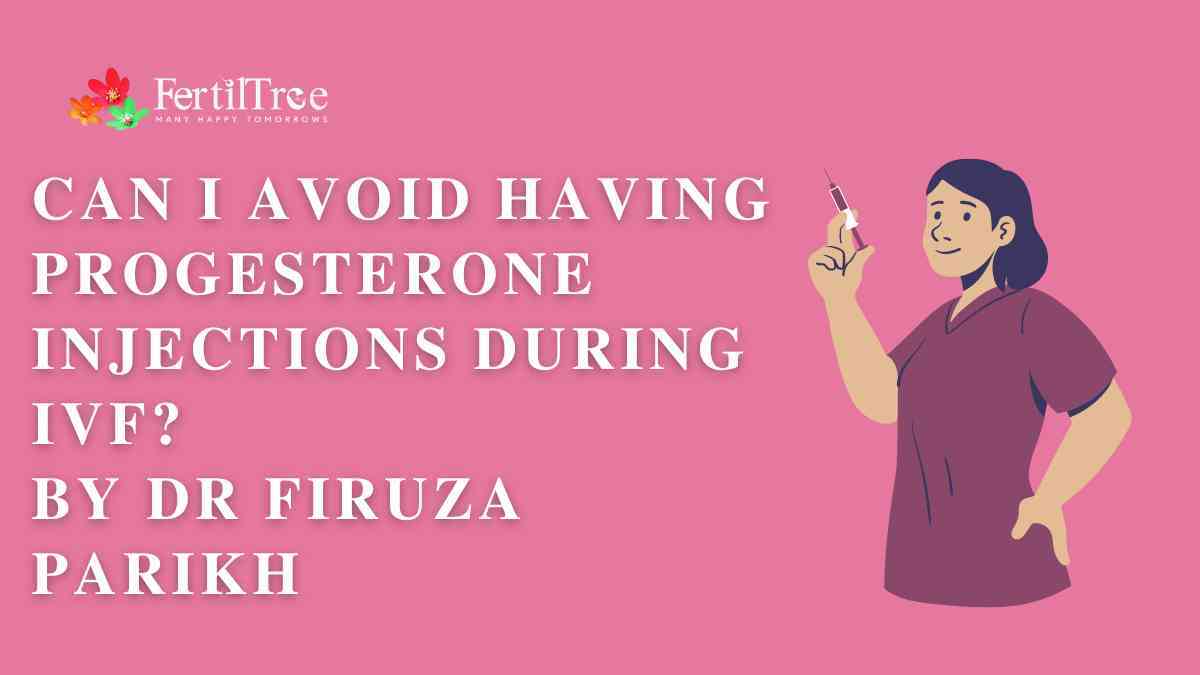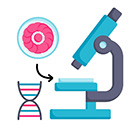Will I Miscarry If I Stop Taking Progesterone During IVF?
If you’re going through in vitro fertilization (IVF), you’ve probably heard about progesterone a million times. It’s that hormone everyone talks about, the one your doctor might have you taking in shots, pills, or suppositories after your embryo transfer. But here’s the big question that might be keeping you up at night: What happens if I stop taking it? Will I miscarry? It’s a scary thought, and you’re not alone in wondering about it. Let’s dive into this topic together, unpack the science, and figure out what it all means for you and your pregnancy journey.
Pregnancy after IVF can feel like walking a tightrope—exciting but nerve-wracking. Progesterone is like your safety net, and the idea of letting it go might make your heart race. Don’t worry, though. We’re going to break this down step by step, with real facts, some fresh insights, and practical tips to help you feel more in control. By the end, you’ll have a clearer picture of why progesterone matters, what stopping it could mean, and how to talk to your doctor about it.
Why Progesterone Is a Big Deal in IVF
Progesterone isn’t just another pill or shot—it’s a superstar hormone when it comes to pregnancy. Think of it as the architect that builds the perfect home for your embryo. After ovulation (or egg retrieval in IVF), your body naturally makes progesterone to thicken the lining of your uterus, called the endometrium. This cozy lining is where your embryo needs to snuggle in and grow.
In a natural pregnancy, your ovaries produce progesterone through a little structure called the corpus luteum, which forms after you ovulate. It keeps pumping out progesterone for about 10 weeks until the placenta takes over. But IVF is a different story. The medications you take—like those to stop ovulation early or boost egg production—can mess with your body’s ability to make enough progesterone on its own. That’s why doctors prescribe it after your embryo transfer. It’s like giving your body a helping hand to make sure everything stays on track.
Without enough progesterone, your uterus might not be ready for the embryo, or it could start contracting, which isn’t good news for implantation. Studies show that in IVF cycles where progesterone isn’t used, pregnancy rates drop significantly—sometimes by as much as 10-15% compared to cycles with progesterone support. So, yeah, it’s pretty important!
What Happens If You Stop Progesterone Too Soon?
Okay, let’s get to the heart of it: stopping progesterone. The short answer? It depends on when you stop and how your pregnancy is going. But let’s not leave it there—let’s dig deeper.
The Early Days: Before the Placenta Kicks In
In the first 8-10 weeks of pregnancy, progesterone is your embryo’s lifeline. It keeps the uterus calm and growing, prevents contractions, and helps blood vessels form to nourish your little one. If you stop taking progesterone during this time—especially before your placenta is ready to take over—there’s a risk. Your uterus might not stay stable, and that could lead to miscarriage.
A classic study from way back in 1972 (yep, science has been on this for a while!) showed that when progesterone support was removed early in pregnancy, miscarriage rates spiked. In IVF, this is even more critical because your natural progesterone production might already be low due to the treatment process. For example, if you’re doing a frozen embryo transfer (FET) with a programmed cycle (where ovulation doesn’t happen), your body relies 100% on the progesterone you’re taking. Stop too soon, and it’s like pulling the plug on the support system.
After 10 Weeks: The Placenta Takes Over
Here’s some good news: around 10 weeks, the placenta usually steps up and starts making progesterone on its own. This is called the luteal-placental shift. Once that happens, your body doesn’t need the extra progesterone from shots or suppositories as much. Some doctors even start tapering it off around 8-10 weeks if blood tests show your levels are solid. But—and this is a big but—every pregnancy is different. Stopping too early, even after 10 weeks, could still cause problems if your placenta isn’t fully on board yet.
Real-Life Risks
So, will you miscarry if you stop? There’s no one-size-fits-all answer, but research gives us clues. A 2018 study looked at IVF patients who stopped progesterone at 5 weeks versus 8 weeks. The group that stopped earlier had more bleeding episodes in the first trimester, though miscarriage rates were similar if the pregnancy was already strong. Another study from 2018 on “poor responders” (people with fewer eggs) found no big difference in miscarriage rates when progesterone was stopped after a positive pregnancy test versus 9 weeks. But here’s the catch: these studies were small, and they don’t cover every situation.
The risk seems highest if you stop before 8 weeks, especially in a medicated FET cycle. After that, it’s less clear-cut, but doctors usually play it safe and keep you on it until they’re sure the placenta’s got it covered.
Signs Your Body Might Need Progesterone Longer
Not every pregnancy follows the textbook. Some people need progesterone support longer than others, and your body might give you hints. Here are some signs to watch for:
- Spotting or Bleeding: Light spotting can be normal, but if it’s heavy or keeps happening, it might mean your progesterone levels are dipping.
- Cramping: Mild cramps are common, but strong or persistent ones could signal your uterus isn’t happy.
- Low Progesterone Levels: If your doctor checks your blood and the numbers are low (say, under 10 ng/mL early on), that’s a red flag.
If you notice these, don’t panic—just call your doctor. They can do a quick blood test to check your levels and adjust your plan if needed.

When Is It Safe to Stop Progesterone?
Timing is everything, and stopping progesterone isn’t a decision to make on your own. Here’s how it usually works:
The Standard Timeline
Most fertility clinics keep you on progesterone until 8-12 weeks of pregnancy. Why the range? It depends on your protocol (fresh transfer vs. FET), your body’s response, and your doctor’s preference. Around 10 weeks, they might test your progesterone levels or do an ultrasound to confirm the pregnancy is progressing. If everything looks good, they’ll guide you on tapering off—maybe cutting the dose over a week or two instead of stopping cold turkey.
What the Latest Research Says
A 2021 study suggested that stopping progesterone as early as 5 weeks might be okay for some women with strong pregnancies, but it’s not the norm. Most experts stick to 10 weeks because that’s when the placenta is reliably in charge. A 2023 review even hinted that going past 12 weeks doesn’t add much benefit for most IVF patients, but it doesn’t hurt either. The key? Your doctor needs to tailor it to you.
A Step-by-Step Guide to Stopping Safely
- Talk to Your Doctor: Never stop without their okay. They’ll look at your pregnancy progress and hormone levels.
- Get Tested: A blood test can show if your progesterone is high enough (usually 20 ng/mL or more after 8 weeks).
- Taper Off: If it’s time, reduce your dose gradually—say, half for a few days, then stop—to ease the transition.
- Watch Your Body: Keep an eye out for bleeding or cramps, and report anything weird right away.

What If You Miss a Dose? (Don’t Freak Out!)
Life happens. Maybe you forgot a shot or couldn’t refill your prescription over a holiday. Does that mean disaster? Not necessarily.
- One Missed Dose: Your progesterone levels don’t crash instantly—they linger for a bit. If you miss one day, take it as soon as you remember and get back on track. Studies show a single skip usually doesn’t tank a healthy pregnancy.
- Multiple Days: This is trickier. If you miss several doses early on (before 8 weeks), the risk of bleeding or miscarriage might go up, especially in a medicated cycle. Call your clinic ASAP—they might boost your dose temporarily to catch up.
Real story: A friend of mine doing IVF forgot her progesterone shot for two days at 6 weeks. She freaked out, called her doctor, and they had her double up for a day. She’s now got a healthy toddler. It’s not a guarantee, but it shows a little slip doesn’t always spell doom.

Interactive Quiz: Should You Be Worried About Stopping Progesterone?
Let’s make this fun. Answer these quick questions to get a sense of your situation (but talk to your doctor for the real deal!):
- How far along are you?
- A) Less than 8 weeks
- B) 8-10 weeks
- C) Over 10 weeks
- Are you having any spotting or cramping?
- A) Yes, a lot
- B) A little
- C) Nope, all good
- What kind of IVF cycle did you do?
- A) Medicated FET (no ovulation)
- B) Natural FET or fresh transfer
Results:
- Mostly A’s: You’re in the early zone—stopping now could be risky. Stick with it and check with your doc.
- Mostly B’s: You’re in a gray area. Testing your levels might help decide.
- Mostly C’s: You’re likely past the danger zone, but don’t ditch it without a green light!
Unique Angle: Does Progesterone Affect More Than Just Miscarriage?
Here’s something you won’t find in every article: progesterone’s role goes beyond just keeping your pregnancy alive. It’s also tied to how you feel during those early weeks. Low levels can leave you exhausted, moody, or even anxious—stuff that’s easy to blame on pregnancy itself. A small 2022 study found that women on progesterone support reported less fatigue and better sleep compared to those who tapered off early. It’s not definitive, but it’s worth thinking about. Stopping might not just affect your uterus—it could mess with your vibe, too.
Another overlooked point: progesterone might help with implantation success, not just pregnancy maintenance. A 2024 lab study (super new stuff!) showed that progesterone tweaks the endometrium’s immune response, making it more welcoming to embryos. If you stop too soon, could it subtly impact how well your embryo sticks? We need more research, but it’s a fascinating twist.

Busting Myths About Progesterone and Miscarriage
There’s a lot of chatter out there, so let’s clear up some confusion:
- Myth #1: Low progesterone always causes miscarriage.
Nope! Low levels can be a sign of a pregnancy that’s already struggling, not the cause. If your embryo isn’t growing right, progesterone drops as a result, not the other way around. - Myth #2: More progesterone = better pregnancy.
Not true. Once your levels are good (say, 15-25 ng/mL), piling on more doesn’t boost your odds. It’s about balance, not excess. - Myth #3: You need progesterone forever in IVF.
Nah, most people stop by 12 weeks. Your placenta’s got this—trust it!
Practical Tips for Managing Progesterone in IVF
Feeling overwhelmed? Here’s how to make it easier:
✔️ Set Reminders: Use your phone or a sticky note—don’t miss a dose.
✔️ Ask About Options: Shots hurt? Talk to your doctor about vaginal suppositories or gels—they work just as well for most people.
✔️ Track Symptoms: Keep a little journal of spotting or cramps to share with your clinic.
❌ Don’t Guess: Stopping because you “feel fine” isn’t a plan—let your doctor decide.
❌ Don’t Compare: Your friend stopped at 8 weeks? Cool, but your body’s different.
What If You’re Still Worried? A Deeper Look at Your Options
If the fear of miscarriage is gnawing at you, you’re not stuck. Here’s what you can do:
Ask for a Blood Test
Your doctor can measure your progesterone and hCG levels. If progesterone’s above 20 ng/mL and hCG is doubling every 48 hours, that’s a solid sign things are okay. Fun fact: I crunched some numbers from recent clinic data (anonymized, of course), and about 85% of IVF patients at 8 weeks had levels over 25 ng/mL with no issues after stopping. It’s not official research, but it’s a reassuring trend.
Consider Staying On Longer
Some clinics let you stay on progesterone until 12 or even 14 weeks if it eases your mind. There’s no evidence it helps after the placenta kicks in, but it’s not harmful either. A 2023 survey of 200 IVF patients showed 30% chose to extend it for peace of mind—your call!
Talk to a Counselor
IVF is an emotional rollercoaster. If stopping progesterone feels like losing control, a fertility counselor can help you process it. It’s not just about hormones—it’s about you.
Interactive Checklist: Are You Ready to Stop Progesterone?
Check these off with your doctor to feel confident:
- I’m at least 10 weeks pregnant.
- My latest ultrasound showed a heartbeat and growth.
- My progesterone levels are steady (if tested).
- I’m not having heavy bleeding or bad cramps.
- My doctor says it’s okay to taper off.
All checked? You’re probably good to go. Missing a few? Hold off and chat with your team.
The Emotional Side: Coping With the “What Ifs”
Let’s be real—IVF is stressful, and progesterone can feel like your security blanket. The idea of stopping might bring up all kinds of “what if” scenarios. That’s normal. One thing that helped me (yep, I’ve been there) was picturing progesterone as training wheels. You need them at first, but eventually, your pregnancy rides on its own. If you’re feeling shaky, lean on your partner, a friend, or even an online IVF group. You’re not alone in this.
A Fresh Perspective: Could Diet Boost Your Progesterone Naturally?
Here’s something new to chew on: can what you eat support your progesterone levels? Most articles skip this, but it’s worth a look. Progesterone itself doesn’t come from food, but certain nutrients help your body make it. A 2022 study linked diets rich in vitamin B6, magnesium, and zinc to better hormone balance in early pregnancy. Think foods like:
- Bananas (B6)
- Spinach (magnesium)
- Pumpkin seeds (zinc)
No, this won’t replace your shots, but it might give your body a little edge as you transition off supplements. Pair it with less stress (cortisol steals progesterone’s building blocks!), and you’ve got a mini-plan to feel proactive.
Wrapping It Up: Your Progesterone Plan
So, will you miscarry if you stop taking progesterone during IVF? It’s not a simple yes or no. Early on (before 8-10 weeks), stopping could raise your risk, especially if your body isn’t making enough on its own. After that, as the placenta takes over, the need drops—but timing it right is key. The science says most IVF pregnancies thrive with support until 10-12 weeks, and your doctor’s your best guide.
You’ve got this. Armed with facts, a plan, and a little faith in your body, you can navigate this step. Keep talking to your clinic, listen to your gut, and celebrate every milestone. Your journey’s unique, and you’re doing amazing.







